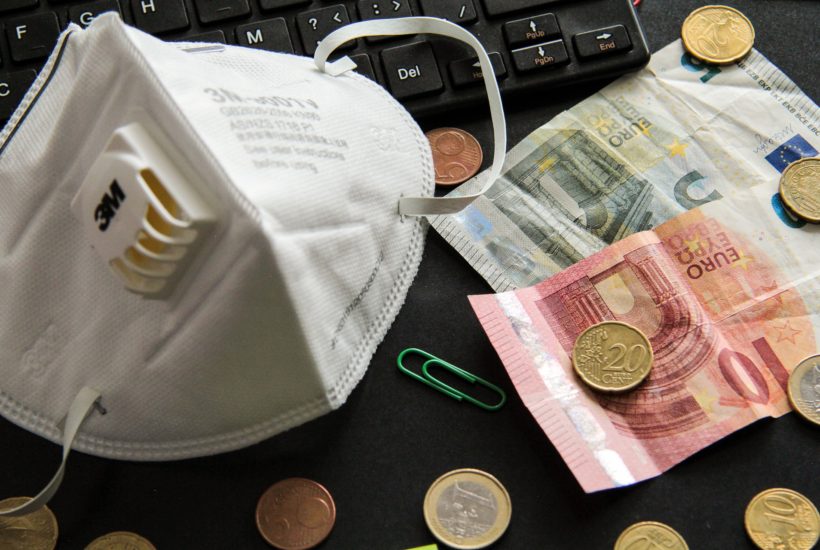Business
How COVID-19 has changed the VC landscape
The financial crisis of 2008-09 uprooted many businesses. But some of the most innovative of the startups bloomed, such as Uber and AirBnB. Constantly falling valuations all along the industrial spectrum is the golden chance for opportunistic VCs to purchase stakes at throwaway prices. Companies and VC firms have to chart a futuristic strategy for dealing with COVID-19.

The outbreak of COVID-19 has changed the world around us very fast. Every aspect of our life—be it personal or social, has not remained what it used to be. Now it has started affecting the world of business as well. Coronavirus disease has curtailed the steady growth of venture capital-backed companies. And things have become worse in record time.
Earlier, our thoughts were—economic situation throughout the world would remain unaffected except for China. Soon it came to us that even the world’s best healthcare systems have been brought to the knees by this deadly pathogen. For industries such as hospitality and travel, the less said, the better.
Venture capital-backed companies have entirely changed their trajectory. Earlier, they were looking for new ways to bloom, but now they are somehow trying to remain in the market. There is an overwhelming dilemma before them—if to raise new capital now or wait for the vaccine.
They must not waste time and assess the post-pandemic outlook, extend payment and sales cycle, calculate their potential constraints in liquidity, and chalk out the immediate capital requirement.
I have written this article to help investors and companies assess their capitalization decisions in the times of Covid-19. I would also deliberate upon the new conditions put on the investors as a condition for accepting capitalization.
Venture capital investment plans in the upcoming time
There is an overwhelming opinion among venture capital firms that a large amount of money is waiting to be invested. Learning from history, like the Dot Com bubble bursting two decades ago, this could be a great time to invest. These times of lesser liquidity and dislocated markets seem to offer better and big investment chances.
Now here is a catch. Of course, there is a large reserve of capital waiting to be invested, but investment coming only from the VC industry is not sustainable in the long run. Conventional capitalization options such as bank financing too have to open coffers. If VCs keep on spending the same rate, they will soon run out of the capital.
It is for this reason that the VC industry is slowing down its efforts and intensity of capitalization. It is also making changes in the distribution of capital. Industry wants to preserve its reserve until the end of the pandemic.
VCs supporting current portfolio
There is a reason why there is a decrease in the flow of capital. VCs want to remain with their existing portfolio and support those during this crisis. Renowned Costa Rican venture capitalist Dale W Wood is of the view that the most successful investment tends to outperform the rest of the combined fund.
Some of the companies under their portfolio might have become profitable with excess cash on balance sheets, yet locating other avenues of capital seems a far away dream right now.
Venture capital companies intend to save their reserves, which is at the disposal of struggling companies. They believe that they can upset their negative balance sheet by having a more significant stake in the company.
Bargain buying
The financial crisis of 2008-09 uprooted many businesses. But some of the most innovative of the startups bloomed, such as Uber and AirBnB. Constantly falling valuations all along the industrial spectrum is the golden chance for opportunistic VCs to purchase stakes at throwaway prices. They now claim the ownership at that price, which was not possible in the last many years.
Balance of power tilting in favor of venture capital companies
For the past years, venture capital companies had to negotiate hard to make deals. They had to undergo extremely founder-friendly terms. It was because there was abundant capital in the market.
However, with the outbreak of Covid-19, conventional funding avenues have dried up. Startups in dire financial conditions are striving to win over each other to get funding.
VCs, too, want to remain with their existing portfolio. It seems to be an apparent tilt in the balance favoring the venture capital companies. They have started to reassert the controls, and tables have turned drastically.
Venture capital being a long game
Early-stage investing venture capital companies usually take a long time to realize a second-stage investment. For startups that become successful earlier, the timeline usually is ten years. On average, the time to exit comes around eight years. It is typically the case that early exits are failed investments.
It takes a longer investment time in a successful company. It is like watching a long boring movie where you are not allowed to leave your seat. Only the ability to patiently ride pluses and minuses in the investment journey sustains it. The current investment mood is pretty gloomy as there are widespread cost-cutting to survive in the uncertainty.
Things have changed so drastically that focus has shifted from profitability to survival.
Covid-19 changing the relationship-building mechanism
A significant portion of VC courting comprises of relationship building. These relationships can be both formal and informal. Conventionally, relations are built at the board rooms. The question arises, would the relationship between venture capitals and founders remain the same during such widespread lockdown measures across the globe?
Reports suggest that the trend of relationship-building in a board room is changing. VCs have become more open and have started building trust and relationships in virtual ways too. They are conducting detailed interviews over video conferencing tools, and further innovative adaptation are being seen.
Different evaluation methods deployed by VCs
Vulnerabilities in businesses are more visible in the times of Covid-19. Hence, it is expected that there would be an increase in the scrutiny of the startup company’s flexibility and stability. The scrutiny would become more prominent in workforce management, service/ product, demand-supply chain, technology adoption, and customer service.
There are high chances that these practices that have become the norm during Covid-19 would remain the same, even after the pandemic ends. Companies adopting these practices now would get a clear head start in the investment race.
Winding-up
Venture funding is not a field that can remain unaffected from the economic onslaughts of Covid-19. Companies and VC firms have to chart a futuristic strategy for dealing with it.
They might have to renegotiate their terms as investors and founders. Alternative financial options might also need to be explored.
The companies’ management shall have to take positive and deterministic steps in their quest for renegotiated financial terms and conditions. Only then would they fulfill their fiscal duties and balance employees’ and stakeholders’ interest. Undoubtedly, the time is challenging, yet those undergoing adaptation shall indeed survive.
__
(Featured image by Romanakr via Pixabay)
DISCLAIMER: This article was written by a third party contributor and does not reflect the opinion of Born2Invest, its management, staff or its associates. Please review our disclaimer for more information.
This article may include forward-looking statements. These forward-looking statements generally are identified by the words “believe,” “project,” “estimate,” “become,” “plan,” “will,” and similar expressions. These forward-looking statements involve known and unknown risks as well as uncertainties, including those discussed in the following cautionary statements and elsewhere in this article and on this site. Although the Company may believe that its expectations are based on reasonable assumptions, the actual results that the Company may achieve may differ materially from any forward-looking statements, which reflect the opinions of the management of the Company only as of the date hereof. Additionally, please make sure to read these important disclosures.

-

 Crypto1 week ago
Crypto1 week agoCaution Prevails as Bitcoin Nears All-Time High
-

 Africa3 days ago
Africa3 days agoBridging Africa’s Climate Finance Gap: A Roadmap for Green Transformation
-

 Biotech2 weeks ago
Biotech2 weeks agoEcnoglutide Shows Promise as Next-Generation Obesity Treatment
-

 Business14 hours ago
Business14 hours agoThe TopRanked.io Weekly Digest: What’s Hot in Affiliate Marketing [uMobix Affiliate Program Review]
























